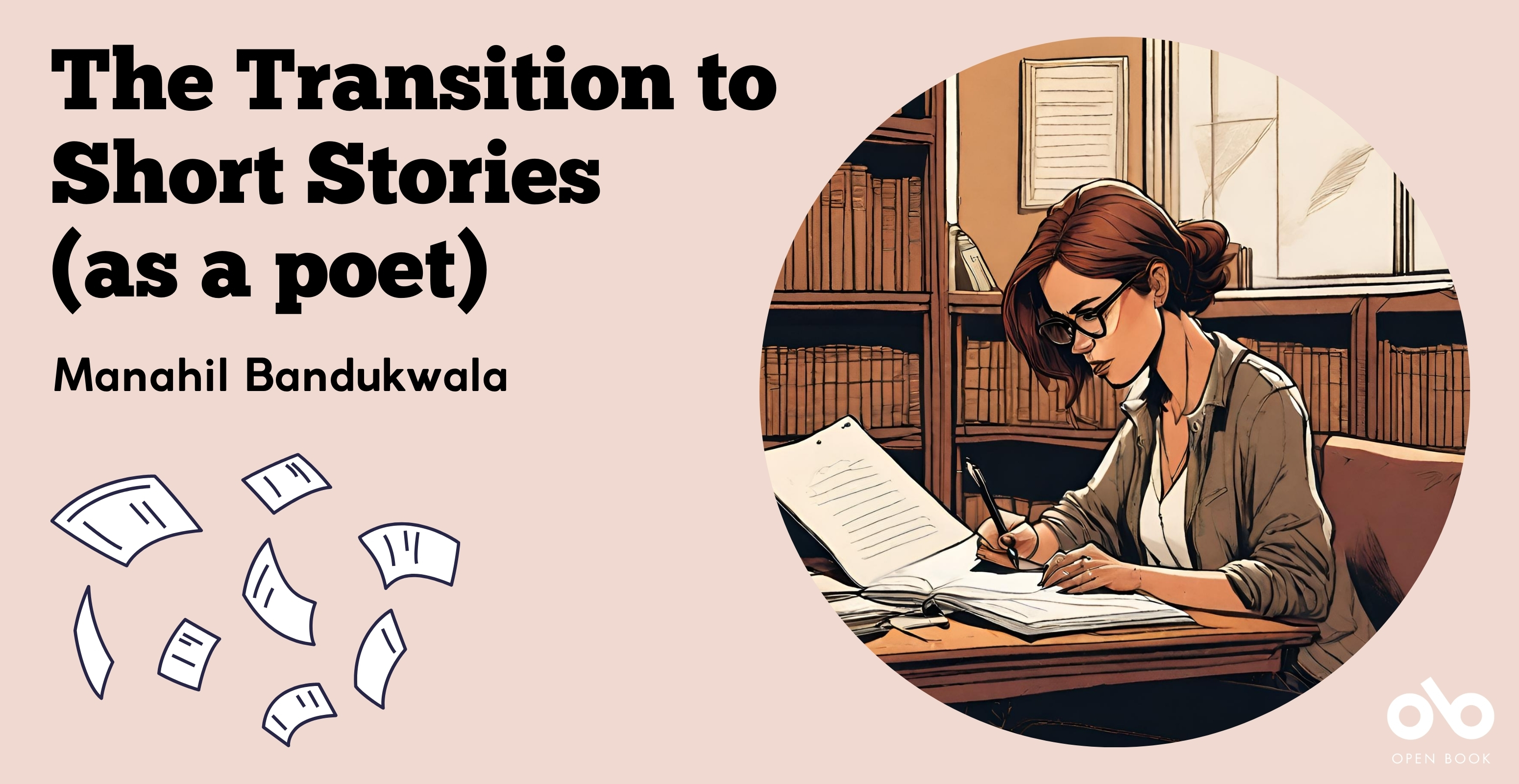The Transition to Short Stories (as a poet)
By Manahil Bandukwala
I’ve spent years now honing my craft as a poet. I know how to edit individual poems, as well as to approach and rewrite entire manuscripts. Why did the need to do the same in fiction seem so daunting to me?
Most of the writing I did as a child and into my mid-teens was fiction. When I pivoted to poetry, I think the ability to finish a poem, and finish it well, appealed to me so much that I left fiction behind entirely for the better part of seven years. During this time, I read mostly poetry too, with the odd fiction book in between.
This fall, I’ve circled back to writing fiction. The writing is currently in the drafting phase, a period that seems to stretch on for so long I can’t yet see the next one. A huge part of my reason for coming back to writing fiction has been reading stunning works by other writers, works that explore and accomplish things that only fiction can.
There are endless ways you can approach writing short stories. Here, I wanted to share what has been most helpful for me given my background as a poet. I hope, with practice, that my craft in fiction improves. Right now though, how can I improve when I can barely get a first draft of a story out?
Get the words down
I write prose all the time, from reviews to essays, grant applications to these columns. In a world where a poem can be less than a fifty words and be complete, I had to remind myself that I’m no stranger to writing thousands of words to articulate a coherent thought. However, the need to use words to create plots, characters, action, and tension can feel like too much to hold in one space.
This might be obvious to writers who write in fiction as their genre, but I was surprised to find how many times I’d put “fill in later” in a draft. Having that in there took some getting used to, but I remind myself that the first draft is for throwing words on a page. The subsequent drafts are for writing the notes into something that is more coherent.
Try different methods of drafting
Poems can be short enough that my first (bad) drafts occur in notebooks. With fiction, I tend to begin by typing in a Word document. Part of this is so I can jump around easily—even when writing this column, I left this sentence partway, skipped to the next paragraph, then came back and finished this one up.
The downside of the Word document is that I can see the word count at the bottom of the document, and I can see all the blank space. Blank space is a poet’s friend, but it certainly isn’t a prose writer’s. When the words and space don’t fill as fast as I’d hoped, I get disappointed.
Your CanLit News
Subscribe to Open Book’s newsletter to get local book events, literary content, writing tips, and more in your inbox
I’ve never been a Notes app writer. Recently, though, the Notes app has been an ideal in-between for me. It has the draft mindset of a notebook where I can scribble on the go and leave thoughts hanging, but I can copy-paste and jump around between paragraphs and sentences. Do the Notes app drafts make sense? No—they’re usually rewritten, but they serve the purpose of getting the ideas down.
Read other writers as a form of study
This one seems obvious, but I do find there is a difference in reading a short story for enjoyment versus reading a short story as a form of writing study. By reading as a form of study, I look for aspects like how a writer introduces the main character of a story, what perspective the writer uses and how that brings you into the story, and so much more.
A short story in particular can hinge on what is unsaid, or what is implied between lines. Poetry is similar, which is what makes writing short fiction so much fun. The writers and books on my “study” list at the moment are Chrysalis by Anuja Varghese, The Most Precious Substance on Earth by Shashi Bhat, and Out on Main Street by Shani Mootoo. I keep these books by my desk when I’m writing. When I have an idea but don’t know where to take it, these stories help me become unstuck.
The views expressed by Open Book columnists are those held by the authors and do not necessarily reflect the views of Open Book.
Manahil Bandukwala is a multidisciplinary artist and writer. She is the author of Women Wide Awake (Mawenzi House, 2023) and Monument (Brick Books, 2022; shortlisted for the Gerald Lampert Memorial Award), and numerous chapbooks. In 2023, she was selected as a Writer's Trust Rising Star. See her work at manahilbandukwala.com.




